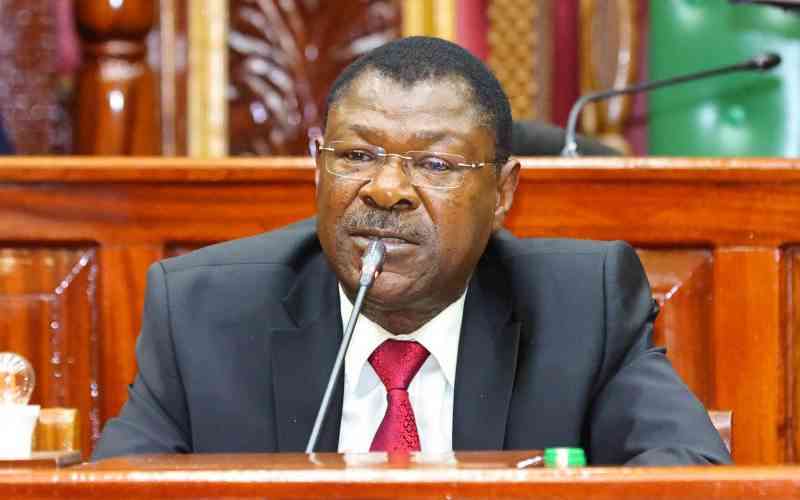Unconfirmed reports have surfaced suggesting that officers from the Ethics and Anti-Corruption Commission (EACC) are currently conducting a raid at the home of National Assembly Speaker Moses Wetang’ula. The alleged operation, which has not yet been officially confirmed by authorities, has already sparked intense public debate given Wetang’ula’s high-profile political position.
If verified, the raid would mark a significant development in the country’s anti-corruption efforts, as Wetang’ula is one of the most senior leaders in government. As Speaker of the National Assembly, he not only presides over parliamentary business but also plays a key role in shaping national legislation. Any suggestion of EACC action against him is bound to attract widespread scrutiny and political attention.
At the moment, details remain unclear. The EACC has not issued a formal statement, and Wetang’ula himself has yet to comment on the matter. In such cases, it is not unusual for speculation to spread quickly, fueled by the secrecy that often surrounds investigations into powerful individuals.
Should the reports prove accurate, the raid would raise critical questions: What specific allegations prompted the EACC’s involvement? Does this signal the beginning of a larger investigation, or is it related to a specific complaint? And most importantly, how might such an event affect Wetang’ula’s role in Parliament and his political influence going forward?
The development also underscores the growing public interest in accountability and transparency among Kenya’s top leaders. In recent years, the EACC has carried out several high-profile investigations targeting politicians, senior civil servants, and government officials accused of misusing public resources. Each case has tested the public’s confidence in the country’s ability to curb corruption.
For now, Kenyans are left waiting for confirmation. Until either the EACC or Speaker Wetang’ula addresses the reports, the situation remains clouded in uncertainty. What is clear, however, is that the mere suggestion of a raid at such a senior leader’s residence is enough to stir both political and public discourse, highlighting the fragile balance between governance, accountability, and public trust.


